Frank Gray: Leeds United, Nottingham Forest and Scotland great on his family dynasty ... and winning over Brian Clough
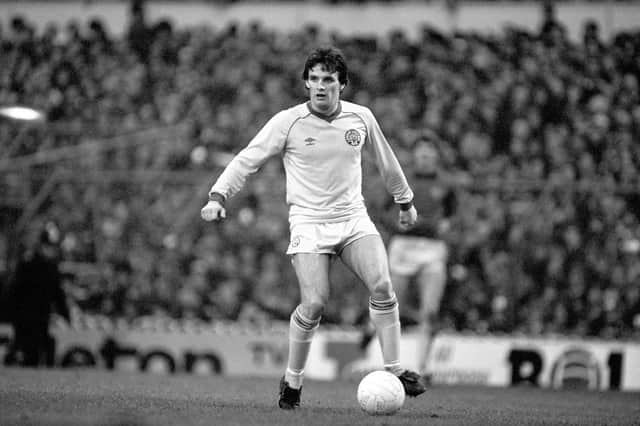

“Mum passed away last summer having almost made it to 100,” explains the dashing full-back who wore Scotland’s dark blue 32 times. “The journey from her nursing home near Hampden Park to the crematorium took us right past our old house - 14 Cavin Drive, Castlemilk. We didn’t anticipate that but it was a lovely surprise. Like me, Eddie at that moment must have been remembering where we first kicked a ball about for hours on end until we got hungry for a piece and jam. I didn’t ask him but I’m sure he was.”
What a story this is: Eddie, prince of wingers, demon of the dribble, Leeds United’s artist-in-residence during the club’s imperious glory years … and Frank, following him onto Elland Road’s left flank, required to be slightly less flamboyant, but picked by those giants of the dugout, Don Revie, Brian Clough and Jock Stein, and a winner of the European Cup.
Advertisement
Hide AdAdvertisement
Hide AdFrank also made it to the World Cup, something else which eluded the often injury-hit Eddie, and Spain 1982 was achieved in part through victory in Scotland’s first-ever encounter with Israel, our opponents in this evening’s crucial qualifier.
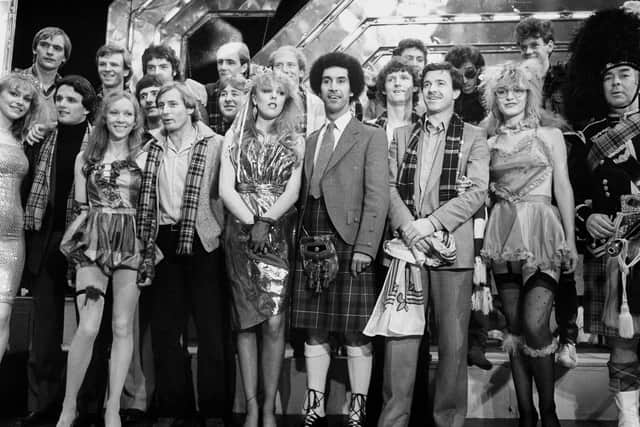

But there was no favourite in the eyes of their mother Helen, who was present at the national stadium every time her boys returned north to play for their country. When I last spoke to Eddie three years ago, having just helped her move into the nursing home, he’d discovered a suitcase of cuttings she kept charting his progress from Glasgow Schools to the top of the game. “There was one for me too,” laughs Frank, “although Eddie and I were always told by our uncles and folk around the city that there was another Gray who was the best footballer of the lot - our dad.
“He was a legend on the amateur scene before the Second World War, a left-winger like Eddie. He fought with the Highland Fusiliers in Belgium, was shot in the leg which put paid to his football and saw his best friend killed right in front of him. He never got over that and when the war was finished he started smoking. He hit the ciggies big time and died of lung cancer aged 51.
“His last match was at Wembley in 1972 when he saw Eddie win the FA Cup. He took ill right after the game and although he was transferred from a London hospital back to Glasgow he passed away a few months later. I’d just signed for Leeds and had been looking forward to having him at my games. Dad used to come down on the train all the time with [fellow United Scot] Jimmy Lumsden’s father to watch Eddie. But it wasn’t to be.”
Dad Edward was of the old school which meant compliments were hard-won. I’ve never met a footballer of the Gray brothers’ era who in his youth was showered with praise like today’s kids with helicopter parents hovering all over the touchlines. “It didn’t do us any harm, though,” says Frank. “It kept us grounded and if Dad said you’d had a good game you knew you had. He’d have loved us to have played for Celtic and so would we. Eddie’s son Stuart eventually did and at least I got to be a Parkhead ballboy, fetching for Jimmy Johnstone and then a cup of Bovril afterwards.”
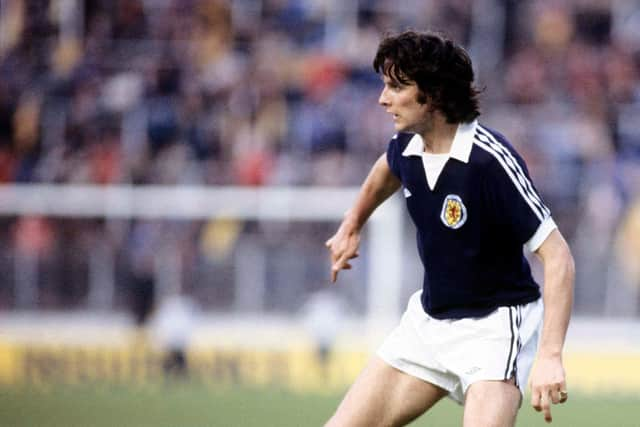

Frank, 66, whose own son Andy won two Scotland caps, is talking from Hayling Island in the Solent on England’s south coast where he’s lived with his wife Jane following a spell in Australia. Hayling Island claims to be the birthplace of windsurfing and boasts a real tennis club so it’s a long way, geographically and philosophically, from Castlemilk. I’ve interviewed a few old boys from “Chateau Lait” - among them Jim McCalliog, Willie Donachie and Arthur Graham who became a Leeds team-mate of the Grays - and the challenges of growing up on what was once Europe’s largest housing estate were never going to curb the football dream and indeed probably acted as a stimulus.
In the school holidays, and when he was as young as ten, Frank used to travel alone to the Yorkshire Dales to watch Eddie, six years his senior, hog the painted line for the club who were starting to dominate English football, his sibling luring hard men with tree-trunk thighs into despairing lunges. Frank adds: “We’ve always been close, as we are with our brother David who’s between us in ages. He came to football later and was a decent right-winger for Largs Thistle. He earned a trial with Aberdeen but just before he was due to go up there he broke an ankle. That was tough but he’s always been supportive of me and Eddie, as has our sister Carol.” So did he get Eddie’s hand-me-downs? “Not his but Bobby Collins had tiny feet and Eddie used to post me up his old boots.”
Don the father-figure
It’s gone into legend that 35 clubs chased Eddie’s signature, which must have log-jammed Cavin Drive as he came to finalising his decision. Revie’s charm did the trick and it was the same for Frank who was no slouch with 30 suitors tracking the rapid progress of the kid brother.
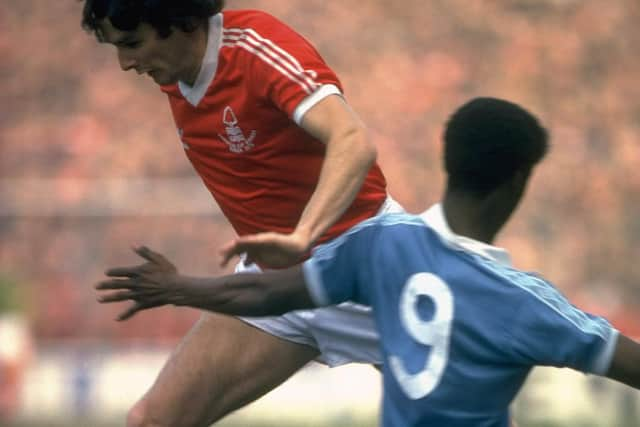

Advertisement
Hide AdAdvertisement
Hide Ad“I listened to Man United, Man City, Arsenal and other clubs who were interested in me but I was comfortable at Leeds from having trained there and that was important when you were 15 and leaving home for the first time. Half the side on any given Saturday were Scottish and Don was a father-figure to me after Dad died and a total charmer, always sending cards on parents’ birthdays. If you were playing an international, even as a schoolboy, you got a telegram from him. They always said: ‘Good luck. Confidence and concentration.’ Leeds had an awful lot of internationalists so the club secretary must have been very busy.”
Gray started out as a midfielder and made his first-team debut in 1973. At 18 he was up against Gianni Rivera in that year’s Cup Winners’ Cup final in Salonika, AC Milan winning a controversial contest of dodgy decisions. “We got a bum deal from the referee who was thought to have taken a bung and he ended up being barred by Uefa.” Leeds were left raging at officialdom again two years later in the European Cup final in Paris, Bayern Munich triumphing. “Allan Clarke was hacked down but the penalty wasn’t given and Peter Lorimer had a terrific goal chalked off.” Their fans were angry but rioting would bring the club a two-year Euro ban.
By ’75 Frank was playing left-back. “It was Jimmy Armfield who moved me there after Terry Cooper broke his leg. First time I was up against Leighton James of Burnley, one of the best wingers in the league, but I did okay and again against [Man City’s] Mike Sumerbee. I’m grateful to Jimmy because I won all my Scotland caps in that position.”
Between Revie and Armfield at Elland Road there was, briefly, Clough. “That was bizarre. We’d just won the league and he wanted to rip up the team and bring in his own men. It’s a new manager’s prerogative of course but we all thought it was about rubbishing Don who he couldn’t stand and the feeling was mutual. He told us to throw our medals in the bin. He told Eddie that if he was a racehorse he’d have been put down years before. Eddie was disappointed to hear that from Brian who’d had his own playing career cut short by injury. I asked Brian: ‘What’s my future?’ He said: ‘I’m not sure you have one.’ Bobby Robson wanted to sign me for Ipswich but when it looked like Brian might not last I decided to stay. We didn’t cheer when he left. Footballers just get on with whatever happens.”
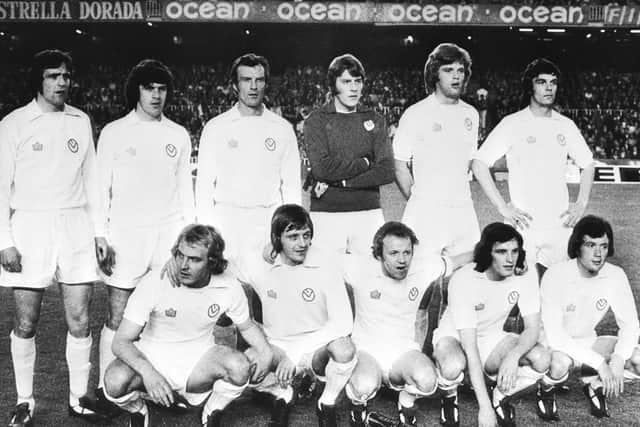

Frank won his first cap in a 1976 Hampden friendly against Switzerland, manager Willie Ormond fielding six other debutants including Willie Pettigrew, scorer of the only goal. He didn’t figure in an Ally MacLeod team and so missed Argentina. A relief? “No, I would have wanted to play in that World Cup. Ally did name me in a Home Internationals squad, Eddie too, but unfortunately I got injured in Leeds’ last game of the season. A shame, because I think the two brothers might have lined up for Scotland together. That never happened and I know our father, watching from on high, would have loved that. He might even have told us he did!”
Frank can’t have left too underwhelming an impression on Clough because in 1979 the latter spent £500,000 signing him for Nottingham Forest, then the unlikeliest of European champions - and, equally improbably, our man would help them retain the trophy. Ol’ Big ’Ead admitted his bull-in-a-Yorkshire-tearoom approach had not worked during his 44-day reign at Elland Road and for Frank life at the City Ground would be a lot less stressful, with the main if not only instruction being: supply Robbo.
“What a wonderful player,” he says of John Robertson who hit that glorious trundler to overcome Hamburg in Madrid. In another team who were Scots-heavy, the left-winger was himself the least sylph-like - “but same as Eddie the ball was tied to his feet.”
The lead-up to the final was classic Clough, an upgrade on the meadow walks he organised back in Nottingham in keeping with the size of the trophy up for grabs. Frank explains: “We went into camp on Mallorca but there was a ban on training because Brain and [No 2] Peter Taylor wanted us to conserve our energy. These two had villas on the island so they weren’t always around and [Scots trainer] Jimmy Gordon would be in charge. But there was only one rule: turn up for the 11am rendezvous. There wasn’t a curfew so Robbo and I were able to nip off to a pub to watch the Scotland-England game.
Advertisement
Hide AdAdvertisement
Hide Ad“For the eve of the final we were moved to a hotel way up in the hills above Madrid, a creepy place where again there wasn’t much to do except play Connect 4. Some of the lads got quite edgy about the lack of training. Peter Shilton said he needed to touch the ball every day. There was no grass nearby except on a roundabout, so he worked out there.” The pre-match team-talk was light. No one was to speak to Kevin Keegan in the tunnel except Kenny Burns, required to growl, and for good measure he dislodged his denture to slaver a Glaswegian welcome. The Scottish enforcer followed up with an early steam-hammer tackle. The Scottish captain, John McGovern, quipped: “You bounce really well, Kev.” The Scottish wingman’s goal came in the 20th minute - “so we had a helluva lot of defending to do,” adds Frank.
“After the game Brian and Peter wanted us back up in the mountains even though all the wives were staying in Madrid. They were adamant. A few of us - Robbo, Burnsy, Martin O’Neill, Larry Lloyd and myself - found out there was a car going down to the city and once the bosses had gone to bed we piled into it. We stayed out all night but the next morning, in time for Peter who was an early riser, we were sitting in the exact same seats in the bar where he’d left us, still in our club blazers and ties.”
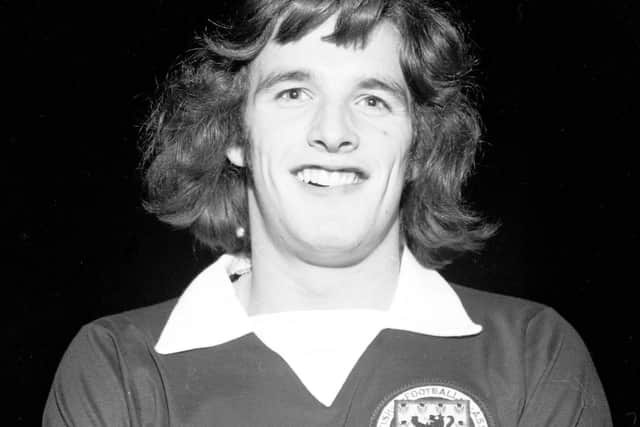

Frank sums up on Clough: “I think a lot of his players would say they didn’t particularly like him as a person - he seemed to fall out with them all - but there was huge, huge respect for him as a manager.” Jock Stein, though, he revered. Briefly Big Jock was his Leeds boss - for 44 days just like Cloughie until Scotland came calling. Frank won his other 31 caps under Stein, including the 1981 Wembley victory over England achieved through a squeaked-in penalty by that man Robbo. “I’d have loved to have beaten them at Hampden but that was some consolation.” Frank’s only goal for his country came from the spot when close to 60,000 gathered at Hampden for a ’82 friendly against a strong Holland team, Kenny Dalglish netting what proved to be the winner.
And it was a Dalglish strike which overcame Israel in that inaugural fixture in Tel Aviv, also in ’81, when Scotland wore red shirts and blue shorts perhaps to flatter Spain, hosts for the big World Cup party the following summer.
By then Frank had returned to the spiritual home of Leeds and would be managed by brother Eddie - “Until he sold me to Sunderland!” That World Cup proceeded along what for Scotland at the time were the usual lines: “We should have beaten New Zealand by more, then came a wee moment when we were ahead against Brazil, possibly the best best side not to win the World Cup, and finally the Soviet Union where we led again only for calamity to strike. But I’ve got nothing but brilliant memories of Spain. Our fans were fantastic and so was Rod Stewart, settling the bill for our slap-up meal on the last night.”
And our story may not be over; we may not have heard the last of the Gray name in Scotland colours. Frank was thrilled when Andy followed him into the team under Berti Vogts and is following with keen interest the progress of grandsons Archie, 15, and 13-year-old Harry.
“Archie is captain of England Under 16s and is doing brilliantly. So is Harry and the other day I was telling him that if he sticks in at the game and listens to his coaches - and I think I might have used Don Revie’s old line about confidence and concentration - then he could achieve the same as his big brother.
“‘No no, Grandpa,’ he said, ‘I want to play for Scotland!’”
A message from the Editor:
Get a year of unlimited access to all of The Scotsman's sport coverage without the need for a full subscription. Expert analysis of the biggest games, exclusive interviews, live blogs, transfer news and 70 per cent fewer ads on Scotsman.com - all for less than £1 a week. Subscribe to us today
Comments
Want to join the conversation? Please or to comment on this article.
